Over the years, Nigeria as a country has evolved from the colonial era to the post-independence era. The nation Nigeria became independent in 1960 and the currency that serves as her legal tender is known as the naira and kobo. Though the kobo denominations seem to have gone into extinction because it is hardly found in circulation over a long period of time due to the economic instability and prices pf goods and services in the market.
The Naira and Kobo were introduced in 1973 but Kobo was phased out because it no longer has value in the Nigerian market. Before the introduction of the Nigerian currency, Nigeria used the pound as currency between 1907 and 1973 and before colonization, trade by barter was used.
In this editorial, we will be focusing on the naira notes and the description of the life and times of personalities in the Nigeria currency to help individuals who are inquisitive to have practical knowledge of the Nigeria currencies.
5 naira
5 naira note has the portrait of Alhaji Tafawa Balewa. He was Nigeria’s first and only Prime Minister during the first republic from 1960-1966. He was born on December 1912 and was killed on January 15, 1966 during the first ever military coup in Nigeria. He was the son of a district head in Kaduna state, he joined politics in 1952 when he served as the minister of works and later served as the minister of transport.
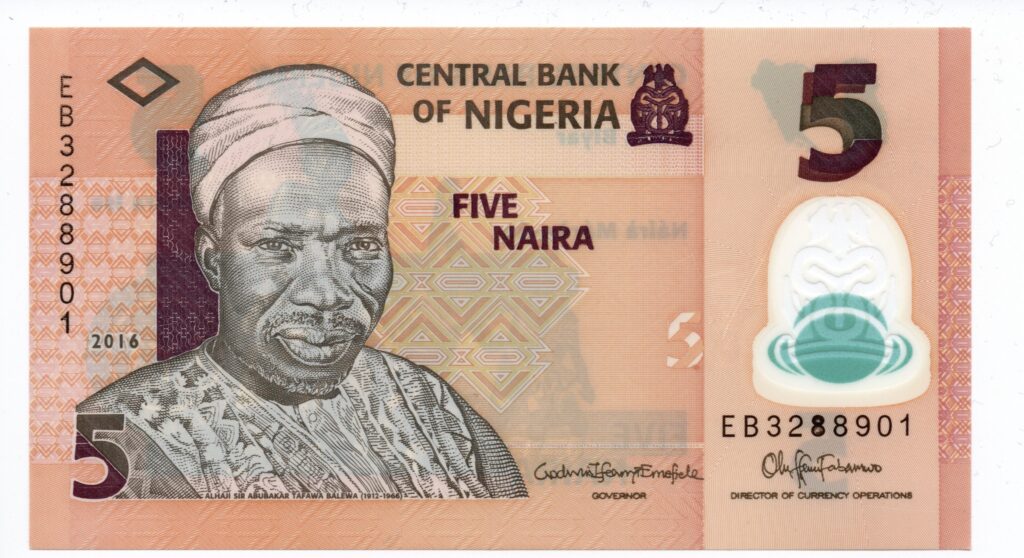
10 naira note
Alvan Ikoku is the man on the 10 naira note, Ikoku was born on August 1, 1900, in Abia state and he died in November 1971. He was described as an educator, a statesman, an activist, and a politician. He was nominated to the Eastern Nigeria House of Assembly in 1946. In 1947, Ikoku became a representative of the Eastern region on the legislative council in Lagos where he moved the motion for a bill of right to free education.

20 naira note
The 20 naira note has the portrait of Murtala Mohammed. Murtala Mohammed was Nigeria’s Head of State between 1975 and 1976 when he was killed in a coup. He lived between 1938 -1976. He led the second infantry division during the civil war and he was named the general commander. On the reverse side is Ladi kwali. Ladi was a Nigerian potter. She earned national recognition through her expertise in pottery. She was born in 1925 and died in 1984.

50 naira note
The 50 naira note has images drawn on both sides. The front side has an image of 3 men and a woman which represents the cultural diversity of Nigeria and the back side has an image of a big fish that was caught by a fisherman to portray the industrious side of Nigerians.
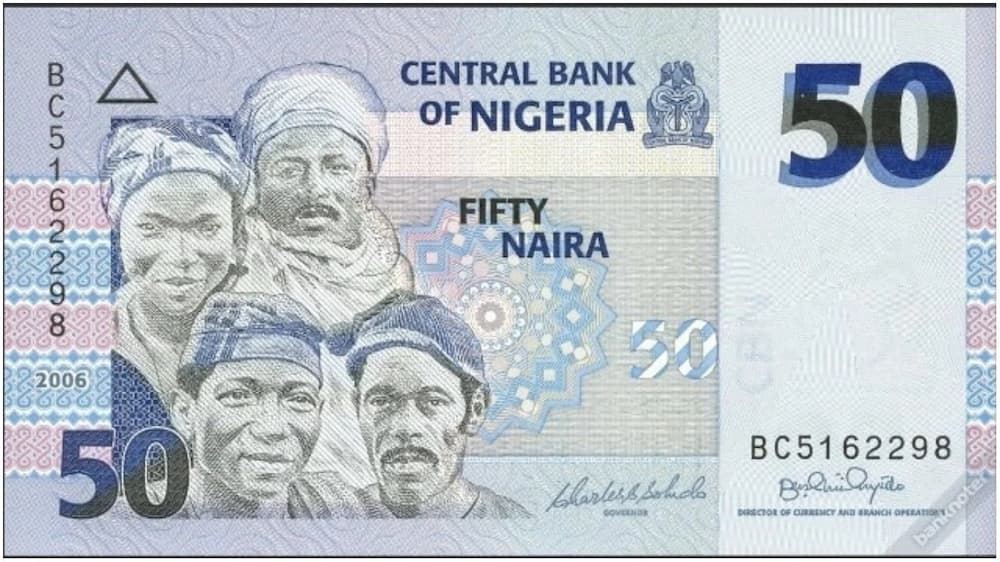
100 naira note
The image of Chief Obafemi Jeremiah Awolowo is embedded on the 100 naira note. Awolowo was born in 1909 in Ikenne, Ogun state. He died in 1987. He was described as an astute politician and intellectual, Awolowo was the Premier of the Western Region between 1954–1960. He was the head of government business and also served as the minister of local government and finance.
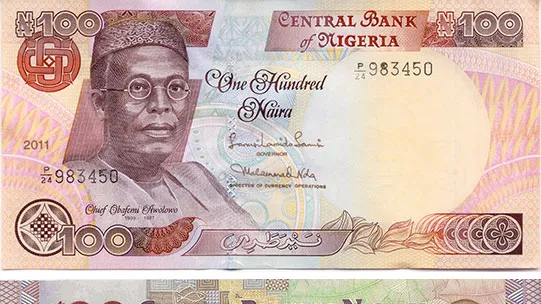
200 naira note
Sir Ahmadu Bello has his image on the 200 naira note, he was the Saduana of Sokoto and the first premier of the northern region from 1954-1966. He was born on June 12, 1910, and he died on January 15, 1966. He was killed during the first military coup in Nigeria.
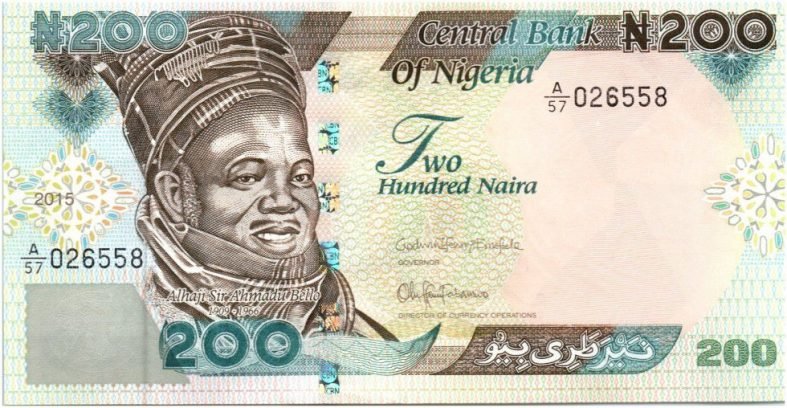
500 naira note
500 Naira has the image of Dr. Nnamdi Azikwe, he was an intellectual and fondly called Zik of Africa due to his contributions and various capacity he has served. He was the first president of Nigeria, he governed from 1963 to 1966.
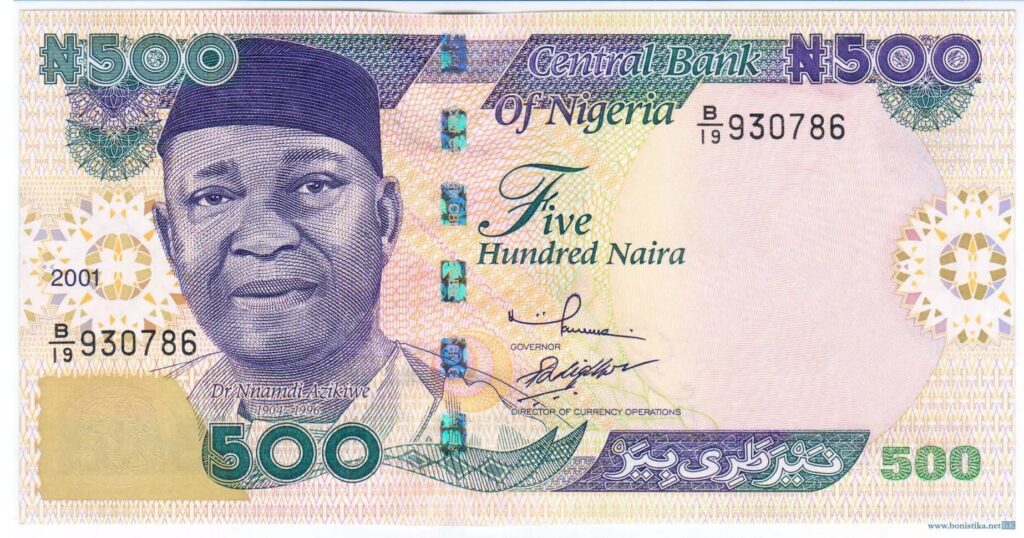
1000 naira note
The 1000 naira note has the image of Clement Isong and Mallam Aliyu Mai-Bornu. Clement Isong was a banker and politician born on April 20, 1920, in Eket, Akwa Ibom state. He was the governor of the Central Bank of Nigeria from 1967 – 1975. In 1979, he was elected as governor of Cross River state. In 1982, he was honored with Nigeria’s national honor of Commander of the Federal Republic of Nigeria. He died on May 29, 2000. Clement Isong succeeded Mallam Aliyu Mai-Bornu who was the first indigenous Governor of the Central Bank Of Nigeria. Mallam Aliyu Mai-Bornu from 1963-1967.
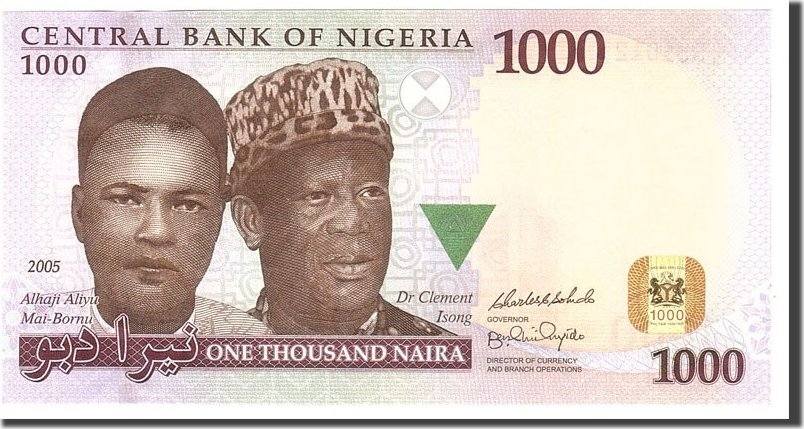




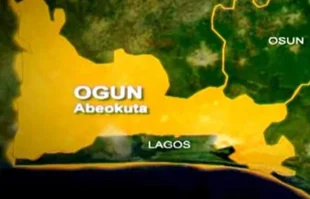

Comments
onyia uche samuel
3 years agothis website was very educative and fun.
Hafsat
3 years agoThis website is very educative an sensitive
mightywoman
3 years agotanks for the brief on each of the personality of the various naira notes.
quite educating
Boyesoko
3 years agoI love this
Adebayo Bolarinwa idowu
3 years agoI need money to establish now
John chukwu
2 years agoYour answer is the best way
Pamela
2 years agoGood 👍